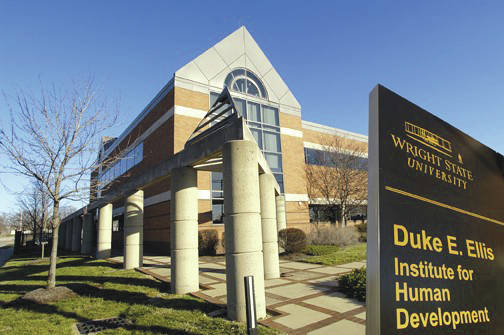

DAYTON — After witnessing or experiencing a violent event, trauma can result.
Dr. Jeremy Schumm, an associate professor at the Wright State University School of Professional Psychology, said it is common for individuals who experienced a traumatic event to be faced with symptoms such as unwanted memories, nightmares, difficulty sleeping, feeling as though their surroundings are not real and/or feeling disconnected to their reality.
While Schumm highlighted that in many cases, the symptoms decline in frequency and intensity after approximately one month after the traumatic event took place, symptoms that are ongoing and become more frequent and severe can result in a trauma-related psychological diagnosis, such as acute stress disorder and/or post-traumatic stress disorder.
He encourages individuals who witnessed a traumatic event to seek out a trusted individual to speak about their feelings.
“Connect with your family and friends,” Schumm said. “It’s important to avoid stuffing down your feelings and avoid not talking about them. Some people cope that way, but it delays recovery.”
He also encourages individuals to get back into their routines following a traumatic event.
“Exercise, hobbies and family routines can be hard after [a traumatic event], but don’t let weeks go by out of your routine or you may be setting yourself up for more serious problems,” Schumm said.
He highlighted that sometimes acute stress disorder symptoms can be a predictor for developing PTSD and said individuals can visit www.ptsd.va.gov/ for up-to-date information about the trauma-induced ailment. Schumm said PTSD has become more treatable within the last 20-25 years, he said, and impactful treatment plans have been developed.
“PTSD, for decades, truly ruined people’s lives,” he said. “It would ruin relationships, cause people to give up hope, develop depression and become suicidal. It’s serious … and hard to resolve without professional intervention.”
In addition to acute stress disorder symptoms, individuals who experienced a traumatic event may develop survivor’s guilt, or the feeling of wondering “why wasn’t it me?”
“People struggle to make sense of a senseless act of violence,” Schumm said. “When there’s no clear reason, people search for answers.”
While Schumm said survivor’s guilt can be common, when individuals become crippled with such feelings it can be a symptom of PTSD.
“Make sure to engage your social support system and define your safe relations — people who are going to support you, not judge you,” Schumm said. “And try your best to get back into your routine.”
The Ellis Human Development Institute, a limb of the Wright State University School of Professional Psychology, will be offering a free, walk-in and call-ahead “psychological first aid” station that will offer screening questions, information and listening ears to those in need following the Oregon District shooting. The services will be offered by Psy.D students-in-training who are enrolled in the School of Professional Psychology, which is overseen by the professors.
It will be open 1-4 p.m. Mondays and Tuesdays; and 11 a.m. to 2:30 p.m. Fridays. The Ellis Human Development Institute is located at 9 N. Edwin C Moses Blvd. and can be reached by calling 937-775-4300.
The Reach Out of Montgomery County Clinic, 25 E. Foraker St., is also an option for those who need to talk. It can be reached by calling 937-258-2000 and will offer services as well as 5-8 p.m. Thursdays.



